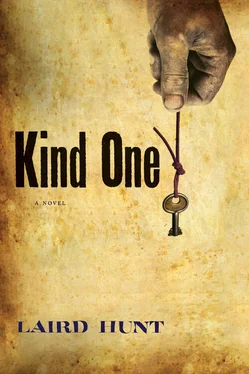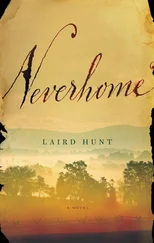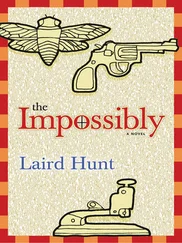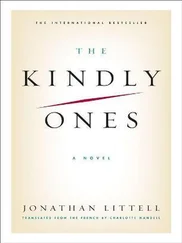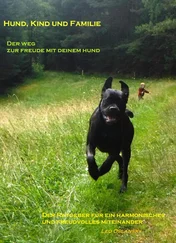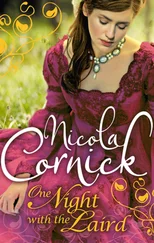
I went when Cleome had fallen deep into her sleep in the corner we had taken for ourselves in the barn. I saw one of the old sows, easing an itch on the oak tree, as I made my way and held my hand up to my head against the bats swooping all around. The candle I had brought did nothing in the bright moonlight. When I reached the shed, I set it on a ledge then went and looked at her. I could see fresh blood, black in the candlelight, seeping around her ankle where the iron cut. She was asleep.
I worked quietly, hooking the far end of the thread to the same bracket that held her chain, weaving the line up over two of the shiny roof beams. Then I took it over the nail stopper in the door and out into the moonlight. The sow was done and had flopped down into a pile by the tree. There were others of her kind around, you could hear them snoring off in the dark. I don’t know when they had stopped fearing bears and wolves, maybe they had all gotten too big to care about things with teeth, and certainly we never troubled them anymore. I took the thread three strong loops around the key as I stood next to the well and left it sitting on the edge. Then I walked my way backward all the way to the bracket, pulling on the line as I went to make sure it was strong. She stirred as I walked by so I had to kick her, make her think I was there for other reasons. It wasn’t hard to pretend. It was not pretend. She barely gave a murmur, though I had kicked her in the neck. I took my candle down off the ledge.
“I’ll see you again in the morning, Mother Ginny,” I said.
Cleome was sitting up when I got back.
“Couldn’t sleep?” she asked.
I nodded. I had her lie back down on the hay and I rubbed her legs. Presently, she was giving out her soft little snores. Sunlight came to wake us all soon enough.
I knew just where it was. After my talk with the Reverend Washington outside of the church, I went and stood in front of the drawer I’d set it in years before. Hidden behind a hairbrush and a pincushion. A bundle of needles. A square of orange cloth.
I am old but I am not yet tired, and I have gotten to live on all these years with Prosper in this place, I thought. I have risen from deep waters and I have kept on, I thought. Fifty years have gone by. I have my vow, I have my life, I thought.
I packed my travel bag, put on my travel hat, and walked out the door. Prosper caught up with me when I got to Michigan Avenue, said to find me he had just followed the trail of everyone I’d walked by like I was some kind of a ghost. I told Prosper that people could think what they wanted and that ghost or not, I was bound on business for Kentucky. Prosper looked at me, saw I meant it, took my bag, and said that if Kentucky was our destination we had best take the train. I asked him about his work at the stone yard. He said his work could wait: he had seen the look in my eye.
The train took us all of a rattle down to Louisville, Louisville of my first dreams. I did not shudder when we stepped off the platform. I did not shudder when our search for a wagon took us near where I had lived as a small girl. For years when the bad part of the past times have come to me, I have nodded my head, set my jaw, and looked them in the eye until they have left again. I did no different now that I had come to them. The wagon Prosper rented for us had a pallet in the back where I could recline. Part of the time as we rolled toward Charlotte County I lay on my back with my head on my traveling bag and looked up at the sky. Every now and then I would lift up and call out some direction to Prosper, but otherwise I just lay there. I was on my back, like a dead thing, when we rolled over the stone bridge.
“We’re here now, Aunt Zinnia, wherever that here is,” Prosper said.
“Paradise,” I said, sitting up, preparing to crack the yolk of my eyes over that world once more. “Paradise is what we called it.”
The barn and house and oak tree were gone. But the well was still there. And the shed. I climbed into the front of the wagon and Prosper went to knock on the door of the house that stood now where the barn had been. I kept my eyes on the well. There was no door on the front of the shed. A couple came out of the house with Prosper, like us but darker-skinned.
“How do?” said the man.
“You will have to forgive me,” I said as they came over. “Now that I am here I see that I will not be able to get down.”
“Aunt Z?” said Prosper.
“You want some cool tea, honey?” said the woman.
But I did not answer them; how could I answer them? For there I was again, standing over what lay shackled unto its misery in that shed. And there I sat, myself, with the shackle on my arm and a rat at my foot. And there leaned Cleome, her back wet from fresh whipping, the rain dripping onto her head through the holes in the roof. And there stood Alcofibras, the chain wrapped around his neck, refusing to sit even though he was kept there for two days. That shed where I had kicked and been kicked. I sat on the wagon and I sat inside of that shed but never moved. The thing at my feet moved. I kicked it. We’ll speak on this someday, I thought.
Still and all, I came to myself and made some apology then learned that the couple had indeed heard of a Ginestra Lancaster, that not two months before a white man down from Indiana had knocked on their door to ask if she had any people over this way. She was getting on in her years, was Ginestra Lancaster, and this man’s and her employer, Lucious Wilson, had sent him from Clinton County to see if he could give any shake to the family tree. The couple had never heard of any Lancasters and had had the farm in their family more than forty years. The man had left them with five dollars for their trouble.
“Clinton County, Indiana?” I said, although I had heard it well enough.
The woman nodded. I could see she really did want to give me a glass of her tea. I drank it sitting in the wagon, knowing the coolness to it had come up out of the well. The man said a word or two about the luck we’d had on our errand in coming to them so soon after the white man from Indiana, and the woman said that luck had nothing to do with it or anything else in the Lord’s domain.
“Aren’t I right, honey?” she said to me.
She was, but I didn’t answer. I was back in the shed. Only this time it was all of us in there at the same time. Rats and pigs and people. As we rode away I did not tell Prosper that he had been here before too, that he had floated in his first waters on this farm, that although his tiny feet had never touched its rocks and soils, he had been with us, both in the shed and out of it, when I and his mother had taken hands together and walked away.

She said it was like taking rocks out of her pockets and dropping them to the ground. Every day she would unload the rocks, one by one, and every morning, when she woke, they would be there again. We walked and the rocks fell from her hands. I wanted to know if it felt a little lighter at the start of each new day and she said it didn’t, but that the rocks were dropping all the same. We kept to the side lanes, went to the ditches when we heard horses, as Horace and Ulysses had told us we must when we left. The closer we got to Louisville the more there were men with whips and guns. Neither one of us had left the farm since we had arrived, but we made our way just the same. We had corn pone and salt pork to eat and water from the streams. We had a Bible, from our mother, which we had kept hidden away for years to read aloud to each other. We could both of us read; our mother had seen to that before her owner and ours had beaten her to death. I carried everything. I did not speak of purple thread. Cleome had the child and her rocks and her time was near.
Читать дальше
